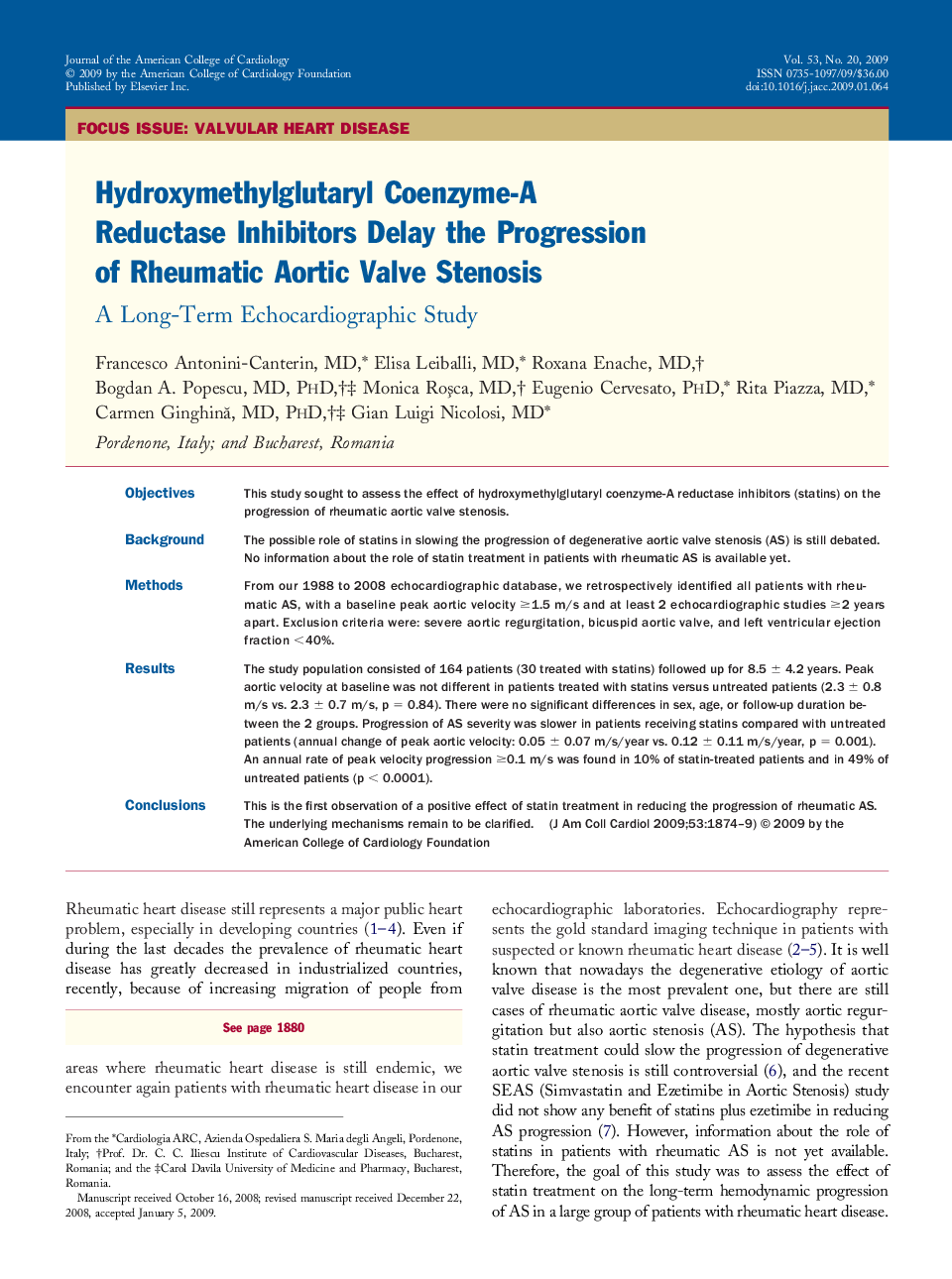| Article ID | Journal | Published Year | Pages | File Type |
|---|---|---|---|---|
| 2951405 | Journal of the American College of Cardiology | 2009 | 6 Pages |
ObjectivesThis study sought to assess the effect of hydroxymethylglutaryl coenzyme-A reductase inhibitors (statins) on the progression of rheumatic aortic valve stenosis.BackgroundThe possible role of statins in slowing the progression of degenerative aortic valve stenosis (AS) is still debated. No information about the role of statin treatment in patients with rheumatic AS is available yet.MethodsFrom our 1988 to 2008 echocardiographic database, we retrospectively identified all patients with rheumatic AS, with a baseline peak aortic velocity ≥1.5 m/s and at least 2 echocardiographic studies ≥2 years apart. Exclusion criteria were: severe aortic regurgitation, bicuspid aortic valve, and left ventricular ejection fraction <40%.ResultsThe study population consisted of 164 patients (30 treated with statins) followed up for 8.5 ± 4.2 years. Peak aortic velocity at baseline was not different in patients treated with statins versus untreated patients (2.3 ± 0.8 m/s vs. 2.3 ± 0.7 m/s, p = 0.84). There were no significant differences in sex, age, or follow-up duration between the 2 groups. Progression of AS severity was slower in patients receiving statins compared with untreated patients (annual change of peak aortic velocity: 0.05 ± 0.07 m/s/year vs. 0.12 ± 0.11 m/s/year, p = 0.001). An annual rate of peak velocity progression ≥0.1 m/s was found in 10% of statin-treated patients and in 49% of untreated patients (p < 0.0001).ConclusionsThis is the first observation of a positive effect of statin treatment in reducing the progression of rheumatic AS. The underlying mechanisms remain to be clarified.
